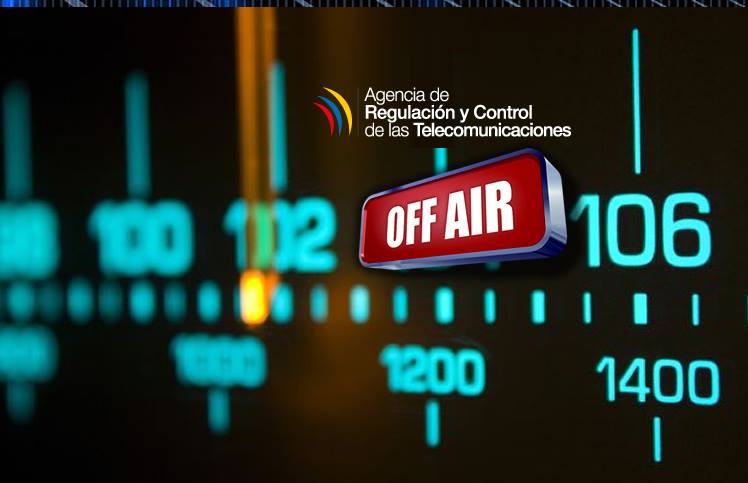
EspañolOver 300 radio and TV stations in Ecuador could disappear overnight, according to a warning issued by Ecuadorian NGO Fundamedios on Wednesday, October 21.
The Agency for Regulation and Control of Telecommunications (Arcotel) is currently reviewing hundreds of network licenses, and claims that the government agency that originally issued them was “not authorized” to do so.
Arcotel’s list includes media outlets whose licenses were automatically renewed by the Telecommunications Superintendency, formerly known as Supertel, between 1995 and 1997.
Last September, however, Arcotel’s Commission for the Audit of Radio and Television Frequencies ruled the renewals invalid. They claim it was beyond Supertel’s authority to grant those outlets permission to operate.
Radio and television stations that have their licensees revoked by the commission will have up to 30 days to file an appeal.
According to Fundamedios, the commission’s original report singled out 158 stations, but a later version included 228 more, making a total of 386 outlets now under review.
Arbitrary Process
On October 13, the Ecuadorian government announced a new system of public tender to allocate airwave frequencies. The head of the Council for Regulation and Development of Information (Cordicom), Patricio Barriga, explained that licenses will no longer be automatically renewed.
“All those interested in operating a media outlet will have to [take part] in the public tender process,” Barriga said.
The Ecuadorian government enacted its controversial Media Law on February 18, 2015, making Arcotel the telecommunications sector’s new regulatory authority. The agency is now tasked with managing, regulating, and overseeing the radio-electric spectrum, and media outlets that wish to operate in Ecuador must meet Arcotel’s criteria.
According to the National Plan of Frequencies, authored by Arcotel officials, the “Citizen Revolution’s government democratizes the frequencies and universalizes information and communication technologies to build a more inclusive, fair, equal, and caring Ecuador.”
[adrotate group=”8″]
Among the criteria for licensing new frequencies is ideological, political, and cultural “pluralism.”
César Ricaurte, head of Fundamedios, tells the PanAm Post that the stations under review are at risk of losing their licenses because they are “extremely critical of the government.”
“What we have noticed is an intent to wipe the spectrum clean, so that the government can start awarding licenses without a transparent, clear process,” he says.
Ricaurte claims the new system will allow the government to “arbitrarily” award licenses to pro-government groups. Since the regulatory body answers exclusively to President Rafael Correa, “no sector other than the executive has representation” in Arcotel, the free-speech advocate explains.
For Fundamedios, this is not an isolated event. Ricaurte says that these changes are part of the government’s broader plan to target independent voices in media.
Against Fundamedios
The Correa administration has gone after the free-speech watchdog several times in the past. In early September, Ecuador’s Communications Secretariat attempted to shut down Fundamedios for “engaging in partisan politics.”
Following the government’s threats, the NGO invoked a constitutional guarantee called the “right to resistance,” claiming that the state body was infringing upon their rights to free speech and association.
Correa’s government eventually backed down, but issued Fundamedios a “final warning” to uphold its bylaws and abstain from participating in political activity.
 Versión Español
Versión Español












